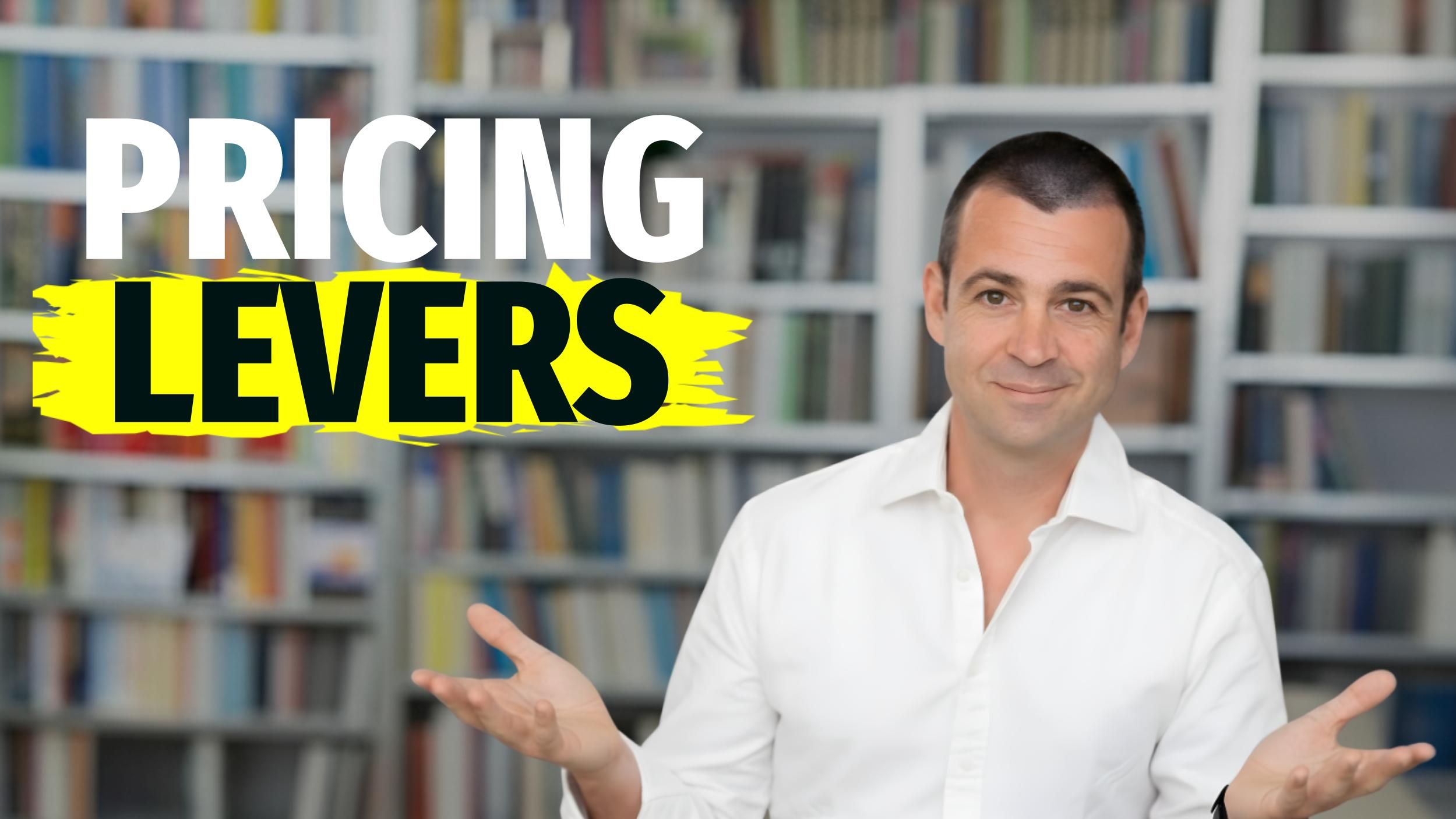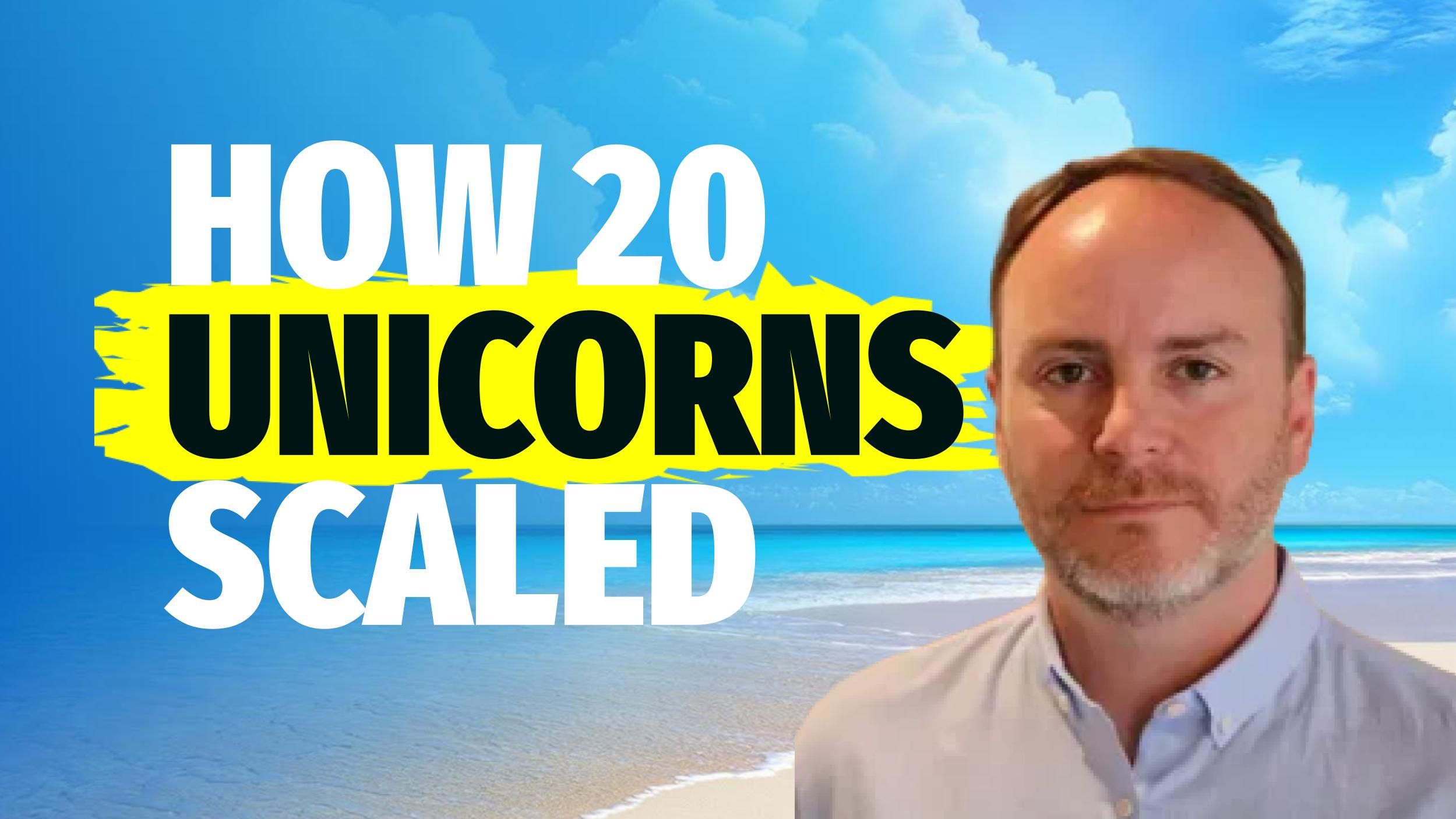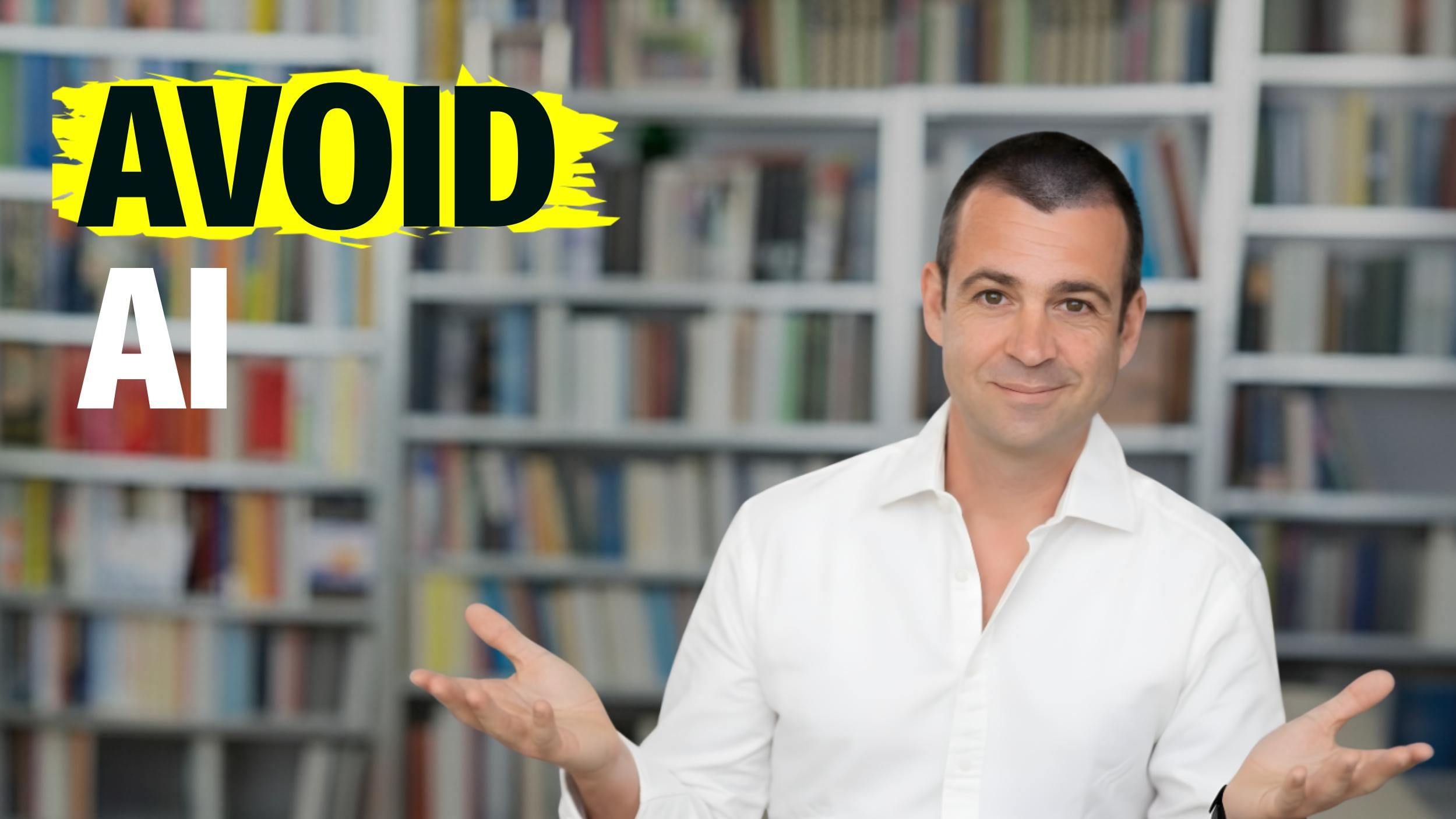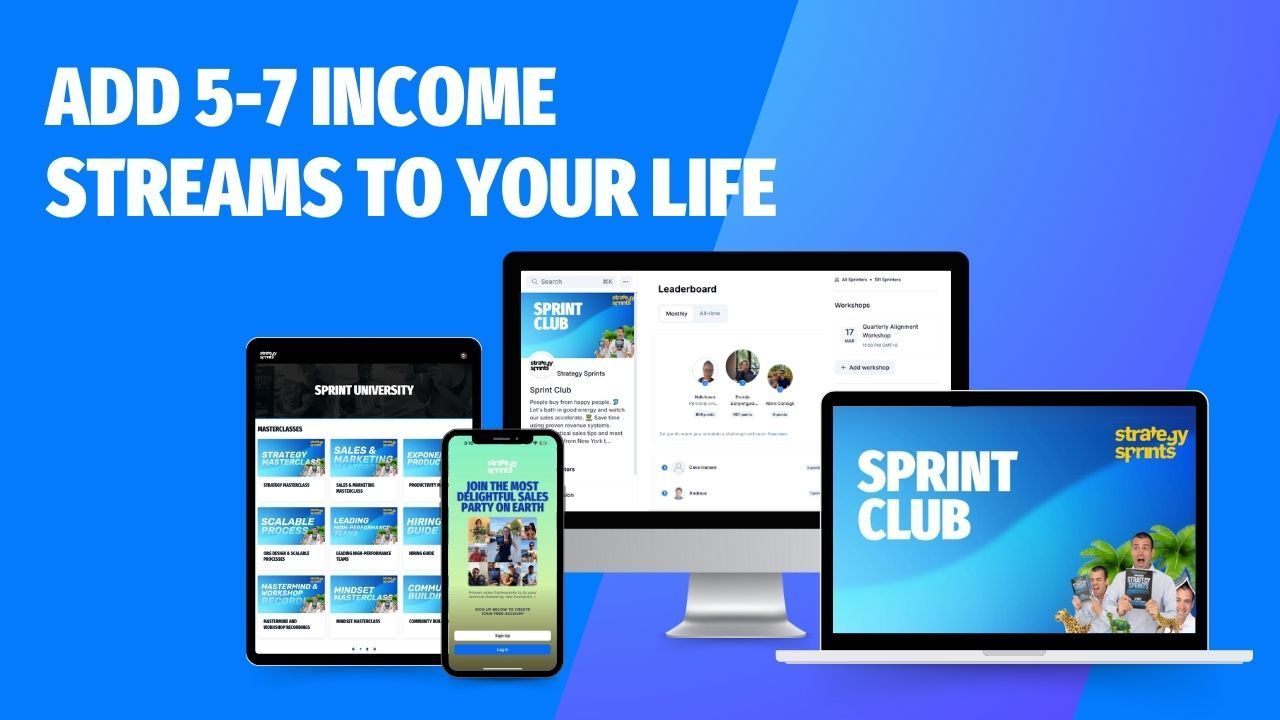
How I raised $100 Million | Drew Tulchin | STRATEGY SPRINTS 160
In this episode, we have Drew Tulchin, experienced impact investment and economic development professional, joining us to share his views on the future of social innovation and impact investing. He is a thought leader in the impact space as well as a growth focused investment professional who specializes in helping small businesses and social enterprises achieve their full potential. Drew brings over 15 years of experience in the impact space working with the U.S. State Department, World Bank, USAID, Citi Foundation and DFID. He specifically helps socially-responsible businesses grow, create jobs, and realize their impact investment and social mission. He works with clients to develop impact business plans & strategies, marketplaces, incentive packages and more.
3 Valuable Insights
- Sometimes startup funding can take a really long time and that's time that the entrepreneur could probably be better spent on growing their business.
- We need to rely on personal relationships and a chain of trust
- You should be authentic to yourself
Show Notes
(00:57) - Simon: How did you raise $100 Million for capital?
(01:09) - Drew Tulchin: This wasn't done overnight. It took hard work, perseverance and a lot of failures.
(01:56) - Simon: You have a group related to somebody who is influential, but even if you are good friends, you need a very compelling story. So what was this?
(02:54) - Drew Tulchin: By having a very strong coherent story that was very well thought out and very real to people, the community-mindedness was completely real and what they were trying to do. It made it very easy then to add the business components on top of that.
(03:57) - Simon: Tell us a little bit more about what you're up to right now, what you're learning in these funky times.
(04:05) - Drew Tulchin: I just started as the president of the New Mexico angels. New Mexico is a state in the Southwest United States and we're not on the coast. We're not where venture capital lifts. Uh, but we have some amazing businesses. We have great entrepreneurs and the mechanism for success is collective action. That's the way that we can see companies succeed, through the community.
(05:20) - Simon: Tell us more about it. How do you do that?
(05:31) - Drew Tulchin: We've got three strongest principles. So let's start with each one, First is that, don't pitch, build relationships. Number two, One of the things that we've been thinking about here in New Mexico is what we call alternative term sheets. If we're getting outside investors to accompany, we often need a legal document and offers. And the first kind of executive summary of that is a term sheet. What are they, what's the deal? And when we've been, trying to think about is not only what is a win for the company, what is a win for the investor, but what's also a win for the community. So it's a win-win-win for everyone and does this actually help the customer? And so we want an alternative term sheet where everybody can make money where it's fair, but where it's also going to help the employees, the customers, the business itself. Um, and it's not just about putting money in and then taking money out and being extractive.
(07:15) - Simon: Who is the ideal client?
(07:55) - Drew Tulchin: We're very interested in having people who care about investing in small companies or who want to serve other startups and the entrepreneurship ecosystem. And now on the other side, uh, we need partners. So we need these startups as founders. These entrepreneurs who want to grow a business, it doesn't have to be a unicorn. We like what's called zebras instead of unicorns, you need a lot of them.
(08:18) - Simon: Is there a recent book or podcast that touched you?
(08:28) - Drew Tulchin: My friend Paul's Zelizer, he has a podcast called aware preneurs. I really believe he's bringing together your thinking, your spirituality and how you feel about business. So it's kind of the left and right brain.
(09:16) - Simon: So, if you look forward, what, how do you see the next year in general terms, but especially for your endeavours?
(10:16) - Drew Tulchin: one is to understand the needs of those around you, right? Your customer. It sounds very basic, but a lot of times businesses are thinking about what they want to do or what they feel they do best, which is valuable, but not actually understand what the marketplace needs and those who have needs how to fulfill them. So that's number one is making sure we're catering to those customers.
The number two is something that I feel very strongly about is the rise of CSR, corporate social responsibility or ESG, right with the environment or what they call the triple bottom line that you're not only going to make money, but you can also help society community. You also can help the environment. And then there's a fourth bottom line, which is community or spirituality. And I think that any effort that is trying to maximize all four bottom lines is actually the dream to do much better and have a much stronger ROI return on investment than just someone who's trying to profit maximize.
(10:54) - Simon: So when you say community, which communities do you serve?
(10:59) - Drew Tulchin: I like your observation there because as you know, there are very many of them in New Mexico, again, it's a very small rural place. So getting people to think about their neighbourhoods, to think about where they shop the circumference of where they shop. We have some native American people who live very far away. And so to actually buy groceries, they're driving 60 miles each way, a hundred kilometers. So to think about what community is and how to help serve collectively, and also how to bring maternity, the luxuries of our 21st century to communities that have struggled with cell phone service, they struggle with wifi, and then they struggle with a lot of health and community ILS. And so how do we take the best of, and make sure it affects everybody and not just the wealthy people in the big cities.
(10:57) - Simon: What are things that you learned via this pandemic that you might not have learned otherwise?
(10:59) - Drew Tulchin: One of the things that has been necessary for me in the pandemic is a little self-discipline around scheduling.
(13:03) - Simon: I just did a video on how to structure the day when you're working from home in this pandemic. You are all about relationships and having them in a very specific way. So how should we not manage relationships and how should we manage them?
(15:42) - Drew Tulchin: You should bring in your own style, you should be authentic to yourself. I really think authenticity is speaking from your heart. I think listening more than talking, which can be hard for a lot of founders that are really just trying to get the word out about what they're doing.
(16:40) - Simon: Which literature around your topic venture capital?
(16:42) - Drew Tulchin: I think there's plenty of stuff on venture capital. So let me give something that's a little bit less typical. I'm a disciple of guy Kawasaki who became famous out of Apple with art of the start. I think a lot of what he says about how you take to design and move that into your world, regardless of what your world is, all, all activities can have designed. So I think that that's very valuable.
(19:04) - Simon: How can you grow via your involvement with the world in fixing problems and in making stuff better.
(19:23) - Drew Tulchin: You totally get it. Yeah. And it's not that radical, right? It doesn't have to be a radical idea. It has, it should be an integrated idea into who you are every day and who's around you every day and how you interact with them.
Meow Wolf was all about creativity and sparking imagination, uh, because in American culture, we're often looking at our devices. Even if we go to Disneyland, everything may be wonderful, but it's scripted. When was the last time you had a spontaneous unscripted, imaginative experience where you just had to use your brain and your ideas and those around you, and sadly, that's getting rare. And I think that that's a really powerful force that can not only do business but also can do a lot for community.
(22:20) - Simon: So what, what you are doing can be also be seen as a microcosm of what the world needs to do, right. Bring art and money together. And, they create wonderful stuff.
Sprint Resources!
Subscribe on YouTube and listen to Apple Podcasts to hear the latest Strategy Sprint episode!
Get our expert sales tips delivered
By submitting you agree to receive our weekly Strategy Sprints Newsletter as well as other promotional emails from Strategy Sprints. You may withdraw your consent at any time via the “Unsubscribe” link in any email or view our privacy policy at ant time.










